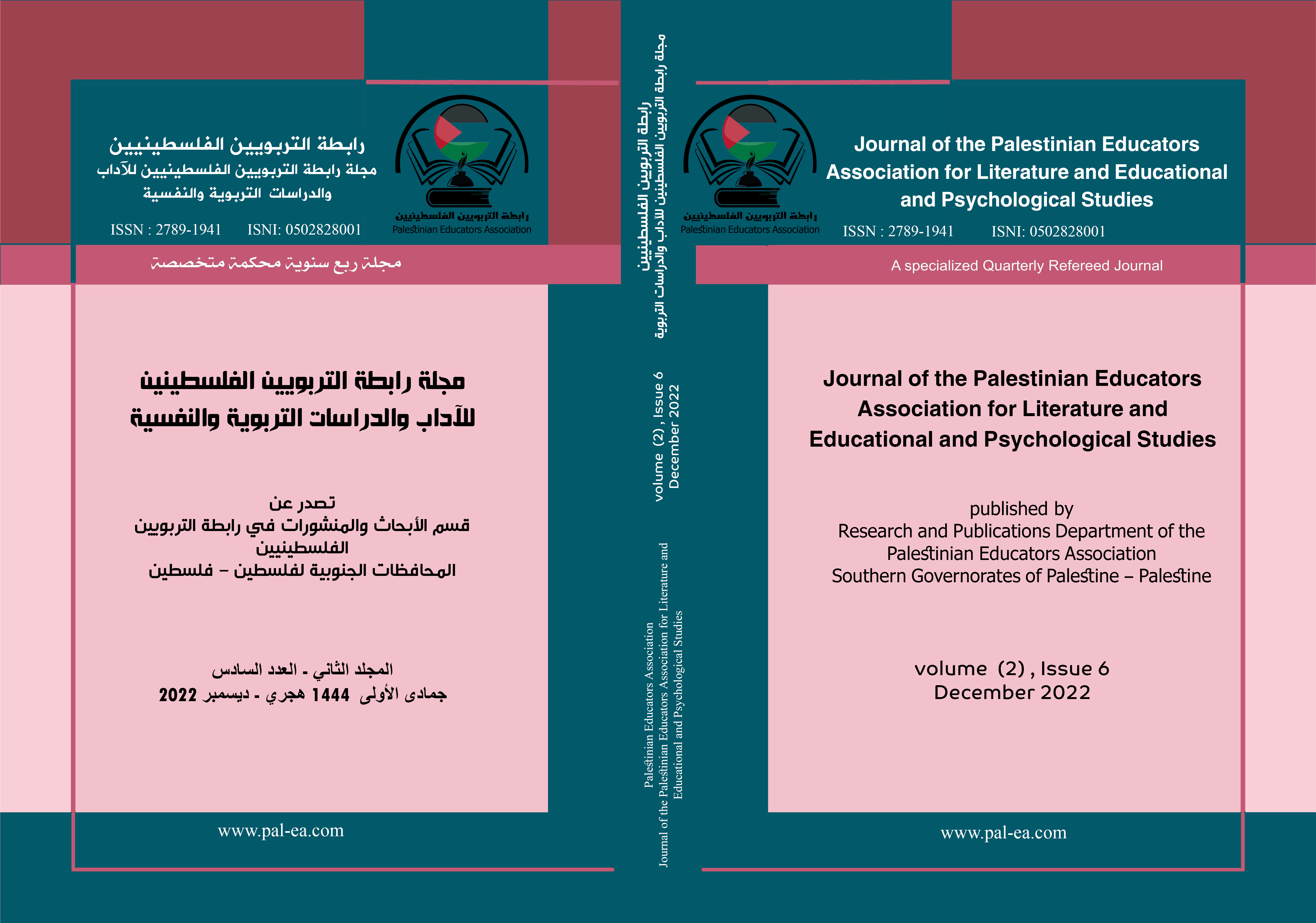Creativity in teaching the Hebrew language curricula in the Palestinian academic community
Keywords:
Creativity - the other's methods - the exclusion of the other - culture - the racist contentAbstract
This paper deals with the issue of universities and academic and professional educational institutions using the curricula of the other, without scrutinizing their racist content. This is due to many reasons, including: ignorance of the national worker in the language of the other and the scarcity of those who are familiar with it, our reluctance to learn it, the lack of workers to follow and criticize it, and the dangers of continuing to ignore this language and its uses in consolidating the authority of the other, occupying, informing and misleading.
In order to overcome this reality, the researcher proposes several solutions, which are: Creating local Hebrew language programs after purifying them from racism, prejudice, incitement and excluding the other, linking these curricula to the place and its real names without forgery, deletion, substitution and exclusion of the other, linking education to visiting the place and watching it, and linking it to reality without using myths and superstitions. As a way to achieve the racist goal that perpetuates the culture of racism and hatred and fuels conflicts, presenting a model or models with pictures and documents so that creativity is tangible and not slogans and theories, and finally linking education to field research.
Downloads
References
المصادر والمراجع
أولاً: المراجع العربية:
- جورج مانو واخرون ، التربية الريادية ، منظمة العمل الدولية ، 2016
- جريري، علي، جولات ملاحظة معاينة ومشاهدة وتصوير 2011 -2022
- شارون ، موشيه : עברית מדוברת , משרד החינוח , פרופ' משה שרון ,תל-אביב,1981 العبرية المنطوقة ، وزارة التعليم .
- قسم التعليم : كتاب القدس ، وزارة التربية والتعليم وبلدية القدس، القدس ،1989
- وزارة التعليم : ירושלים ספר להוראה עברית בבתי ספר ערביים בירושלים , 1989 ، القدس كتاب لتعليم اللغة العبرية في المدارس العربية في القدس
– وزارة الاعلام : القدس الذاكرة والهوية ، علي الجريري ، وزارة الاعلام ، 2014
المراجع العربية الإنجليزية
- George M. and others, Entrepreneurial Education, (in Arabic) International Labor Organization, 2016
Jariri, A. Tours, observing, viewing, and photographing (in Arabic) 2011-2022
- Sharon, M.: 1981 Spoken Hebrew, Ministry of Education.
Department of Education: Al-Quds Book, (in Arabic), Ministry of Education and Jerusalem Municipality, Jerusalem, 1989
The Ministry of Education: 1989, a book for teaching the Hebrew language in Arab schools in Jerusalem (in Arabic).
The Ministry of Information: Jerusalem, Memory and Identity, (in Arabic) Ali Al-Jariri, Ministry of Information, 2014.
ثانياً: المراجع الأجنبية:
- ציפי בן מי , אולפן , משרד החינוך , 2010
- חייט , שלומית , ואחרים , עברית מהתחלה ( א ) האוניברסיטה העברית 2013
- חייט , שלומית , ואחרים , עברית מהתחלה ( ב ) האוניברסיטה העברית 2013
- אורנן , עוזי , דקדוק הפה והאוזן , האוניברסיטה העברית , 2016
Downloads
Published
Issue
Section
License

This work is licensed under a Creative Commons Attribution-NonCommercial-ShareAlike 4.0 International License.
The Journal of the Palestinian Educators Association for Literature, Educational and Psychological Studies
E-issn: 2789-1941
Authors retain Copyright
The Journal of the Palestinian Educators Association for Literature, Educational and Psychological Studies allows Authors retain Copyright and grant the journal right of first publication with the work simultaneously licensed under a Creative Commons Attribution (CC-BY) 4.0 License that allows others to share the work with an acknowledgment of the work’s authorship and initial publication in this journal.
Provided they are the owners of the Copyright to their work, authors are able to enter into separate, additional contractual arrangements for the non-exclusive distribution of the journal’s published version of the work (e.g., post it to an institutional repository, in a journal or publish it in a book), with an acknowledgment of its initial publication in this journal.
Authors are permitted and encouraged to post their work online (e.g., in institutional repositories, disciplinary repositories, or on their website) prior to
and during the submission process.










